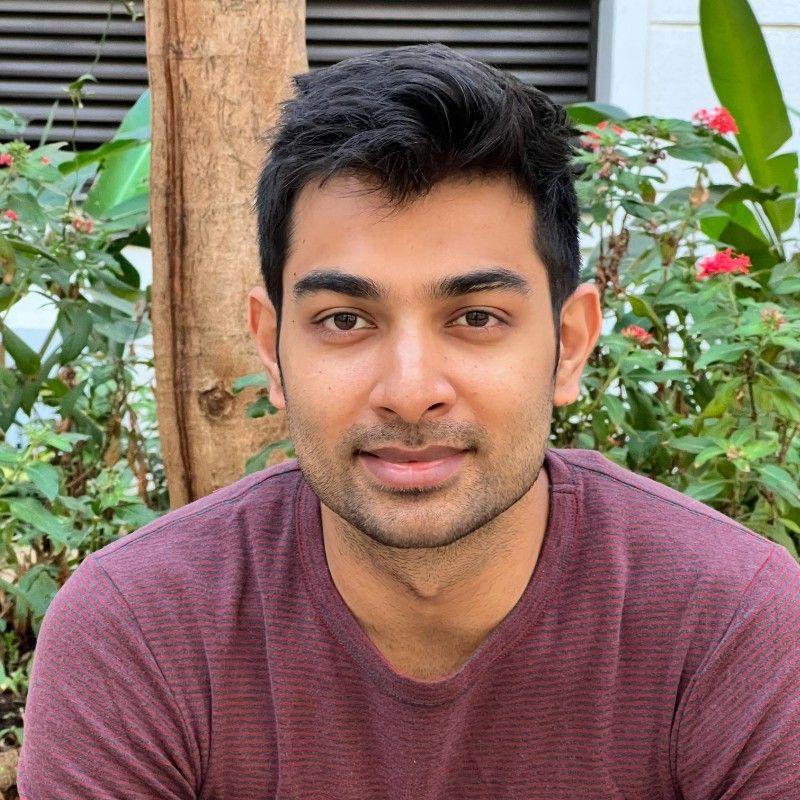(Image - Unsplash)
When my younger cousin was progressing through her senior school, I was convinced she would do really well in life. Not in the vague, patronizing way adults often say about kids, but in a very real, almost instinctive way.
I wasn’t any sage at the time myself. I was just about finishing college, but having gone to a top boarding school and having spent time with enough bright people by the time I finished studying, I was certain that this kid was different. Interestingly, I had no idea what her grades were. My perception only came from the way she spoke, how she observed people, how she handled situations, and how she voiced her opinions on things that mattered to her.
She went to have stellar academic credentials, and today, she’s doing a PhD at an Ivy League university. It never surprised me.
What did make me think was when she recently asked, “How did you know? I wasn’t even a great student most of my school life!”
Honestly, I still don’t know how much she scored in any exam — not in school, not in the GRE, not in anything. Intuitively, I understood that marks only measure a small fraction of intelligence. There is a lot more to it that report cards didn’t show. But what are these other things that all of us intuitively understand but find hard to articulate?
To understand them, we must start with the one universal yardstick.
The IQ
The idea of measuring intelligence through a single number — what we now call IQ, or Intelligence Quotient — began in early 20th-century France. Psychologist Alfred Binet was commissioned by the French government to design a test that could identify children who needed extra help in school. His goal was simply to measure learning potential, not label ability.
But when the test crossed the Atlantic, its purpose changed. At Stanford University, psychologist Lewis Terman adapted it into what became the Stanford–Binet Intelligence Scale. Terman believed intelligence was largely inherited and could be quantified precisely. His version found eager adopters in the U.S. Army during World War I, where it was used to screen and rank 1.7 million soldiers.
Soon after, IQ testing spread to schools, universities, and even immigration offices — often to justify segregationist or exclusionary policies. What began as a tool for understanding learning needs was now being used to determine human worth. A single number, born of noble intent, had become a gatekeeper to opportunity.
One of the strongest challenges to the notion that intelligence is fixed came from a New Zealand political scientist named James R. Flynn.
He discovered that average IQ scores have been rising steadily across generations . In practical terms, what was considered an average IQ of 100 in the 1930s might correspond to 120 or 130 today. Test makers have had to keep recalibrating scores just to stop everyone from appearing “above average.”
This rise, now known as the Flynn effect, points not to better genes but to better environments: improved education, nutrition, media exposure, abstract reasoning, and technology. It shows that intelligence is not fixed — it evolves with the world around us.
Children today might not score perfectly on traditional exams, but they grow up surrounded by visual information, digital complexity, and rapid problem-solving demands that sharpen their abstract thinking.
It also means the next generation will likely appear “smarter” than ours — at least in the narrow, test-based sense. But that doesn’t mean the world has become wiser or more imaginative. Some of history’s boldest discoveries, toughest moral choices, and greatest acts of leadership came in times when average IQs were lower. The period during the Second World War, for instance, saw some of the most pathbreaking inventions being made, the scale of many feats not repeated since.
Rising IQs haven’t necessarily resulted in better politicians, or artists, or leaders in different fields. Corruption, greed, war, crime, and all other sins still abound. If intelligence rose, why hasn’t wisdom kept pace? Or are they two entirely different things?
The triarchic view
Robert Sternberg was one of the psychologists who refused to believe that human intelligence could be reduced to a single number. He argued that IQ tests captured only one kind of thinking — analytical reasoning — while ignoring other, equally vital forms.
He suggested that intelligence actually comes in three forms.
Analytical intelligence is the kind most of us are familiar with — the ability to analyze, compare, and solve problems logically. It’s what exams and IQ tests measure.
Creative intelligence is imagination — the ability to generate new ideas, connect unrelated dots, and see patterns where others don’t. It’s what helps a designer, inventor, or writer break new ground.
Practical intelligence is what we call “street smarts” — understanding people, adapting to circumstances, and navigating real-world challenges. A manager who gets results despite limited resources, or a local entrepreneur who scales a business without formal training, is displaying it.
Sternberg’s research showed that when all three forms were measured together, they predicted real-world success far better than IQ alone. In fact, people high on creative and practical intelligence often outperformed those with higher analytical scores when faced with complex, unpredictable challenges.
And yet, most institutions still test for only one dimension — analytical ability — because it’s easy to measure and compare. Creativity and practicality remain undervalued, even though they’re the traits that drive innovation, leadership, and adaptability in life beyond exams. India is particularly guilty of it.
Here, we don’t really educate students as much as we train them to crack exams. From an early age, the path is laid out: score high, clear the right entrance tests, get into a “top” college. The system rewards diligence, discipline, and analytical intelligence — and in that sense, it works. But it also sidelines every other form of intelligence that doesn’t fit neatly into a question paper.
We claim to look for “the best students,” but what we really look for are the best exam-takers. And in doing so, we often leave behind those who might be brilliant in other ways — the artists, the debaters, the athletes, the storytellers, the ones who could lead, persuade, or imagine differently. Some find their way eventually, but not without first being made to feel inadequate for something as arbitrary as a number on a mark sheet. I’ve always felt this personally. I considered myself a sportsperson first — someone blessed with athletic ability but constantly pushed to focus more on grades.
When my cousin was about to start college, I remember telling my aunt not to confine her to this system. To let her explore a world where she could learn the way she wanted, rather than the way she was told to. And perhaps fittingly, she’s now doing her doctorate at the same university where Robert Sternberg teaches. A small coincidence, but a poetic one.
So here’s a question for you:
Is there a type of intelligence that you discovered relatively late in life, and something that you never thought could be classified as ‘intelligence’ while growing up?
Write to us at plainsight@wyzr.in. We’ll include the best responses in our following editions.
Subscriber Spotlight
Last week, we asked:
What small ritual in your life quietly keeps you connected: to people, to place, or to purpose?
Shishira Parhi shared a poignant response:
“Rituals are a real antidote to loneliness as well as a way to get over grief. The rituals that really get me thinking are the ceremonies we do when our near and dear ones leave for their heavenly abode. This brings friends and family together and allows one to share the grief and also get over the loss. It is very powerful — otherwise these become unbearable.”
What we’re reading this week
The Intelligence Trap by David Robson
Some of the ideas I’ve written about here were first introduced to me through this book. Robson explores why high intelligence doesn’t always translate into good judgment, and how rational thinking, humility, and open-mindedness often matter far more than raw intellect. It’s one of those rare books that makes you question not just what it means to be smart, but what it means to be wise.
Until next time.
Best,

